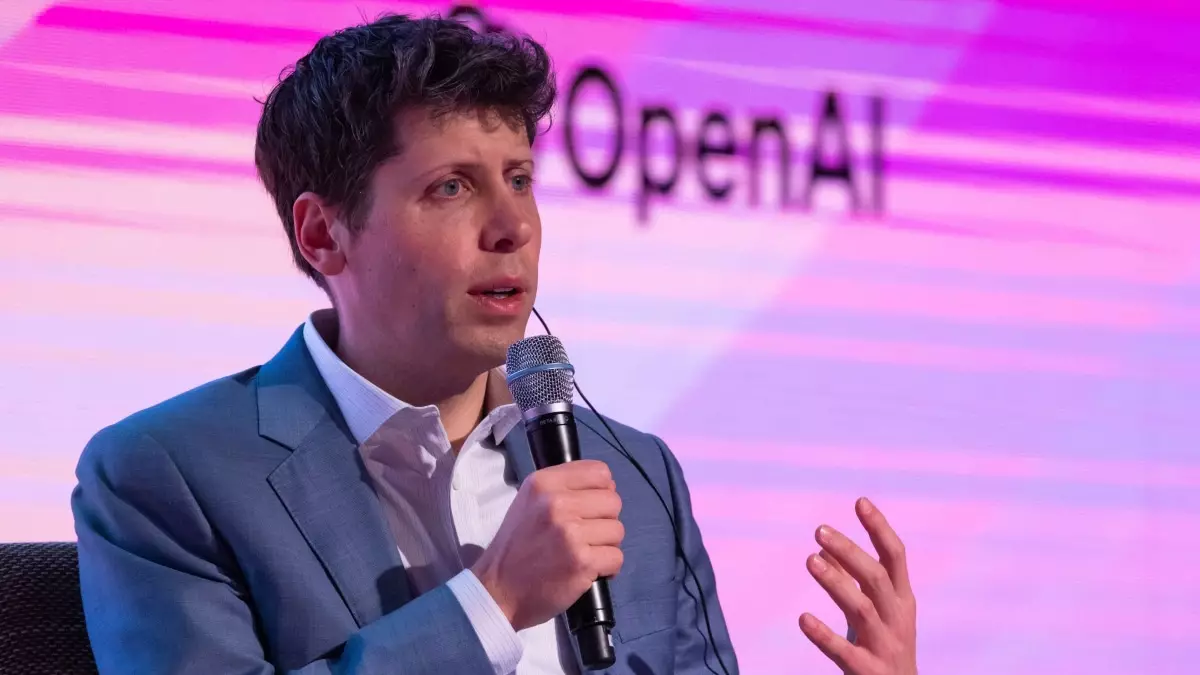In what promises to be a titanic confrontation between two of the tech world’s most powerful figures, a federal judge has set a trial date for March 16, 2024, in Elon Musk’s legal gambit against Sam Altman’s restructuring of OpenAI. The implications of this legal skirmish are profound, as it pits Musk, a visionary billionaire with a penchant for disruption, against Altman, a formidable entrepreneur steering OpenAI into a new era. This showdown is more than just a courtroom clash; it serves as a battleground for contrasting visions of artificial intelligence’s future and the ethical responsibilities that come with it, raising questions about the role of profit in technological advancements.
The Legal Landscape: Musk’s Argument
Musk’s lawsuit essentially argues that OpenAI’s transformation from a nonprofit to a for-profit enterprise undermines its founding mission, which was centered on the ethical development of artificial intelligence. He contends that the organization’s acceptance of massive funding from corporate giant Microsoft has compromised its original charitable intent. This argument is compelling, especially in an era where technology often dances perilously close to corporate interests at the expense of societal good. However, Musk’s motivations might be more layered than a straightforward commitment to OpenAI’s founding principles. Critics suggest that his actions may be influenced by a desire to assert dominance and control, rather than genuine concern for ethical AI development.
Judge Rogers: An Unyielding Arbiter
US District Judge Yvonne Gonzalez Rogers has shown a surprising willingness to expedite the trial, a move that underscores the urgency of the situation. Having previously denied Musk’s request to stall OpenAI’s restructuring, her actions signal a desire to prevent the protracted legal limbo that often stifles innovation and essential industry shifts. This is a commendable stance, as dragging out legal disputes can deter entrepreneurial ventures and paralyze organizations during crucial transitional phases. The upcoming trial date not only sets a precedent for how legal frameworks can adapt to the rapidly evolving tech landscape but also shows that the judiciary recognizes the need for speed in cases where technological advancement and ethical considerations collide.
The Financial Stakes in Play
The multi-billion-dollar ramifications of this case cannot be overstated. OpenAI recently secured a colossal $40 billion funding round led by SoftBank, which valued the company at an astonishing $300 billion. This newfound valuation underscores the fierce competitive landscape in AI. However, the reality is that if OpenAI fails to complete its restructuring by late 2025, it risks losing significant financial backing from SoftBank. Such financial pressures may inadvertently shape the board’s strategies as they navigate Musk’s legal challenges while trying to redefine their business model. This intertwining of financial viability and ethical considerations creates a cocktail of tension that is ripe for analysis.
The Broader Implications for AI Governance
At the heart of Musk’s lawsuit is an overarching tension between profit motives and the social responsibilities of tech companies. This case could set a significant precedent for how AI firms are regulated and held accountable to their original missions. If Musk prevails, it might embolden other entities to scrutinize the intentions behind shifts in corporate governance and could lead to stricter regulations surrounding the ethical implications of AI development. On the other hand, if Altman and OpenAI win, it may signal a green light for other startups to prioritize profitability, potentially drawing them away from ethical obligations in pursuit of financial success.
The Personal Histories: Friends to Foes?
The backstory clings to their personal and professional relationships, revealing a layer of complexity. Musk and Altman were once co-founders invigorated by a shared vision for AI’s future, but diverging paths have led them into a contentious rift. Musk’s claims that OpenAI has strayed from its altruistic roots after accepting corporate funding present an eye-catching narrative. Yet, one must ask: Are these genuine concerns for the future of humanity, or are they tinged with personal ambition and competitiveness? As Musk launched his AI startup, xAI, which subsequently acquired his social media platform, X, a timeline of rival interests starts to emerge that complicates the narrative of altruism versus profit.
This legal battle encapsulates not just a clash of titans but a fundamental discourse on the nature of innovation, regulation, and the ethics of artificial intelligence. It’s a chess game where the stakes are humanity’s very relationship with technology, making the outcome crucial for future enterprises in the tech landscape.

Leave a Reply